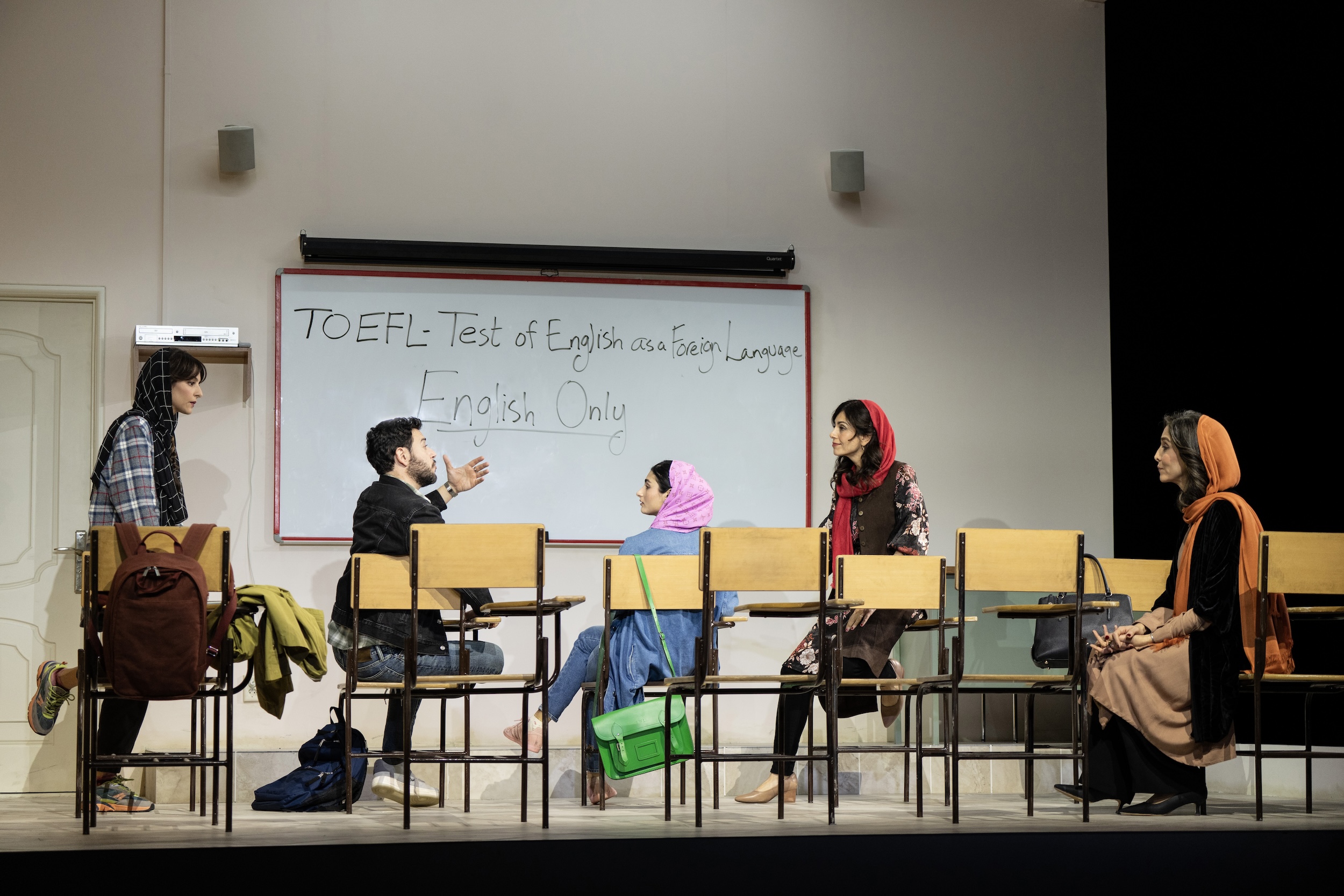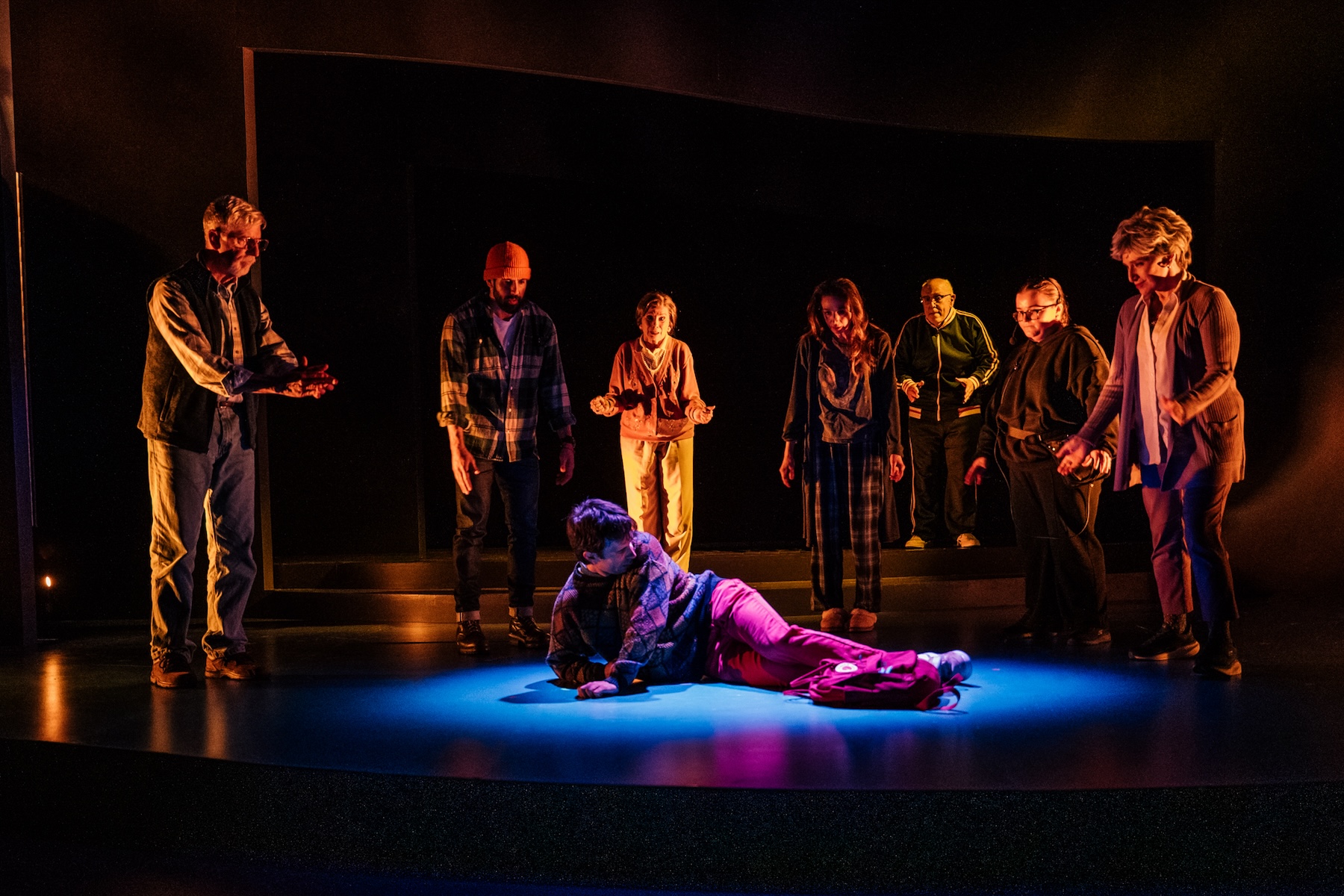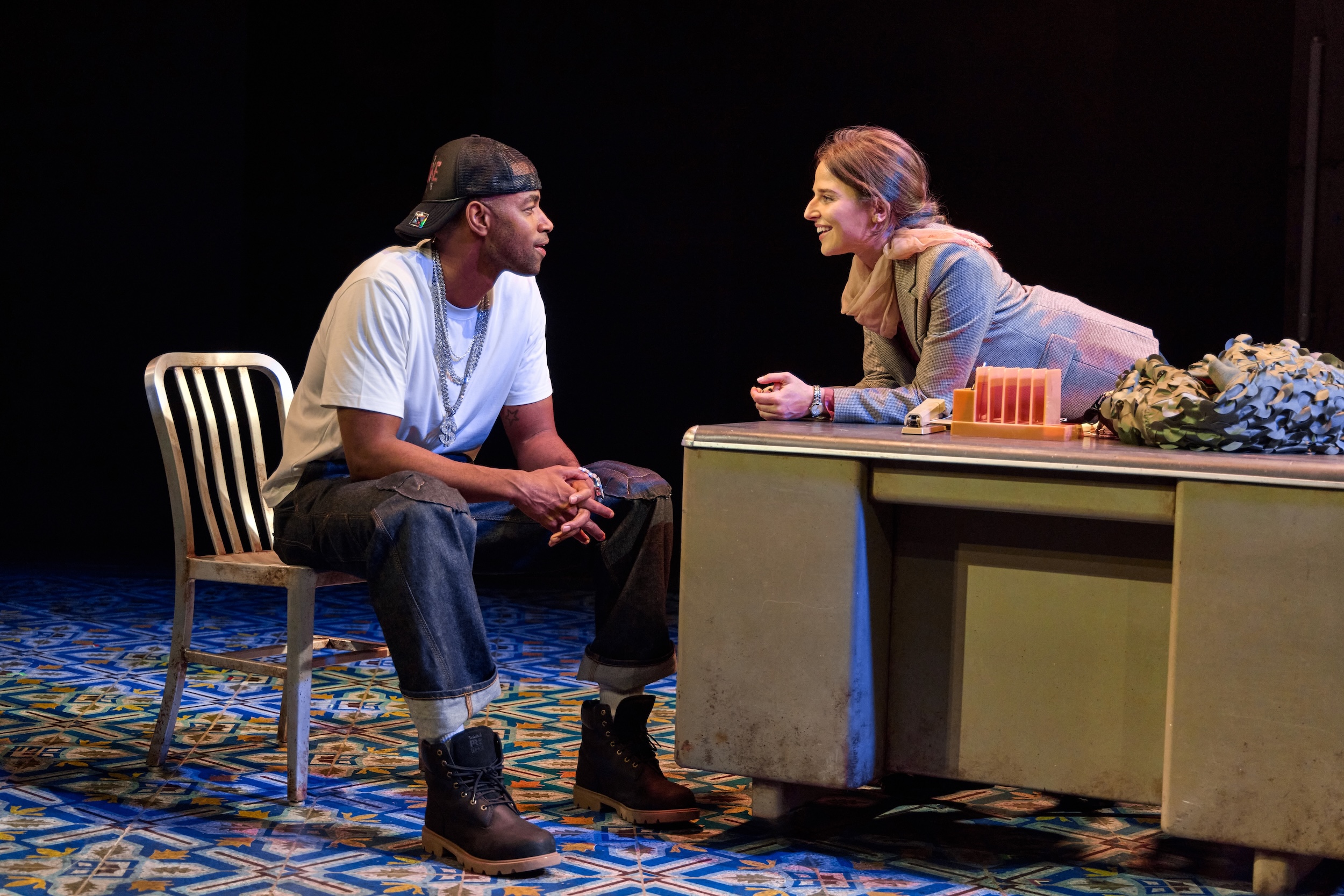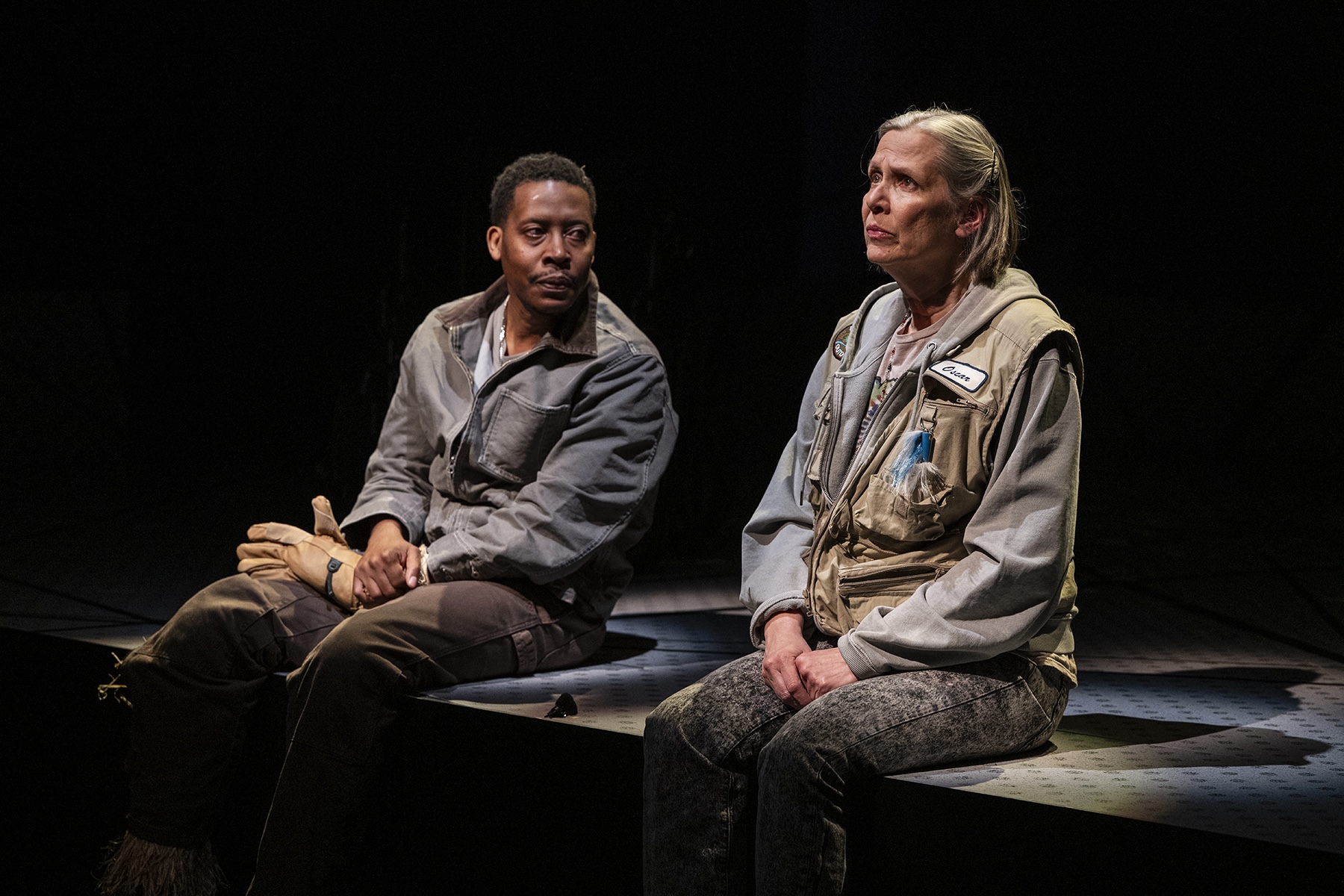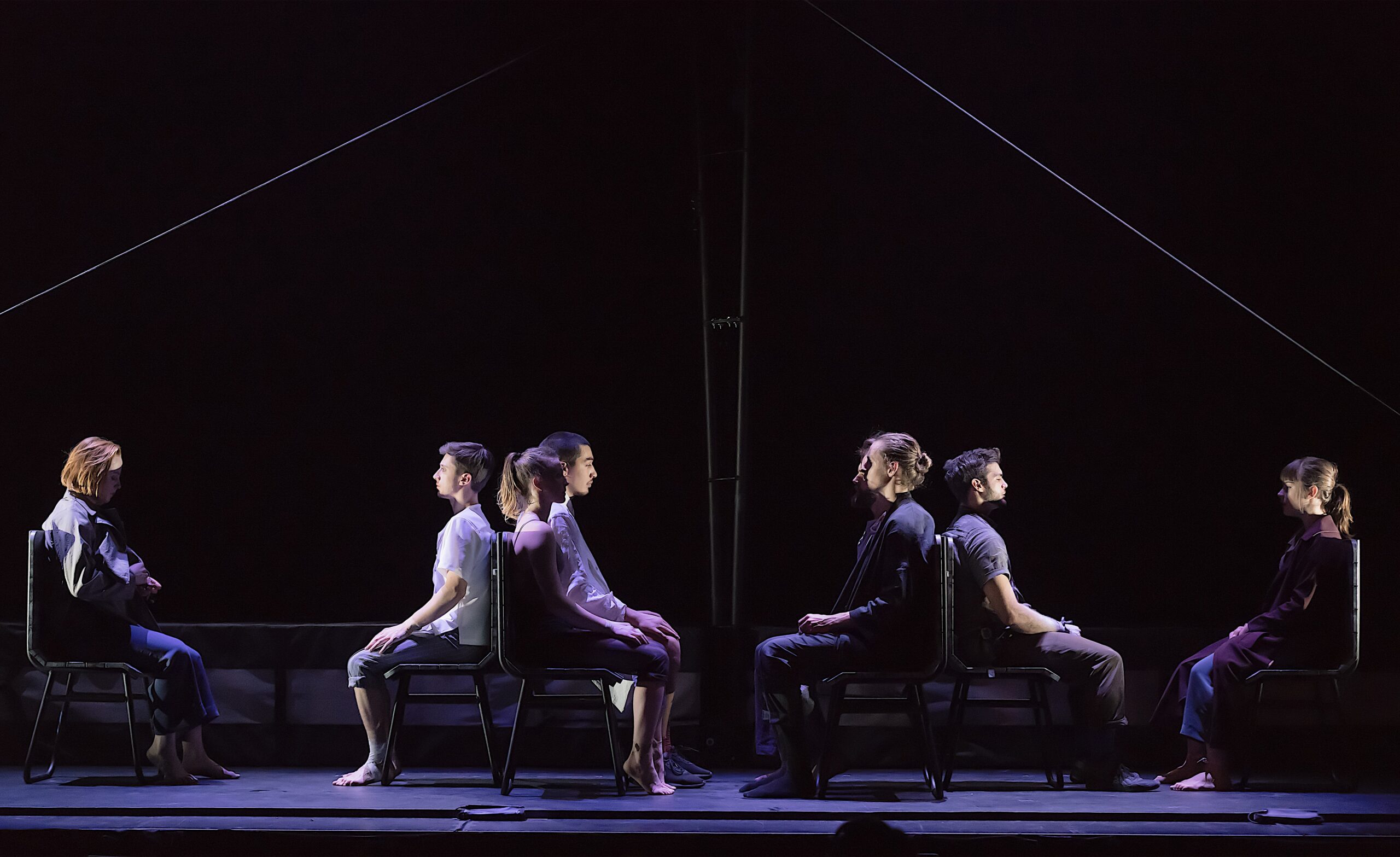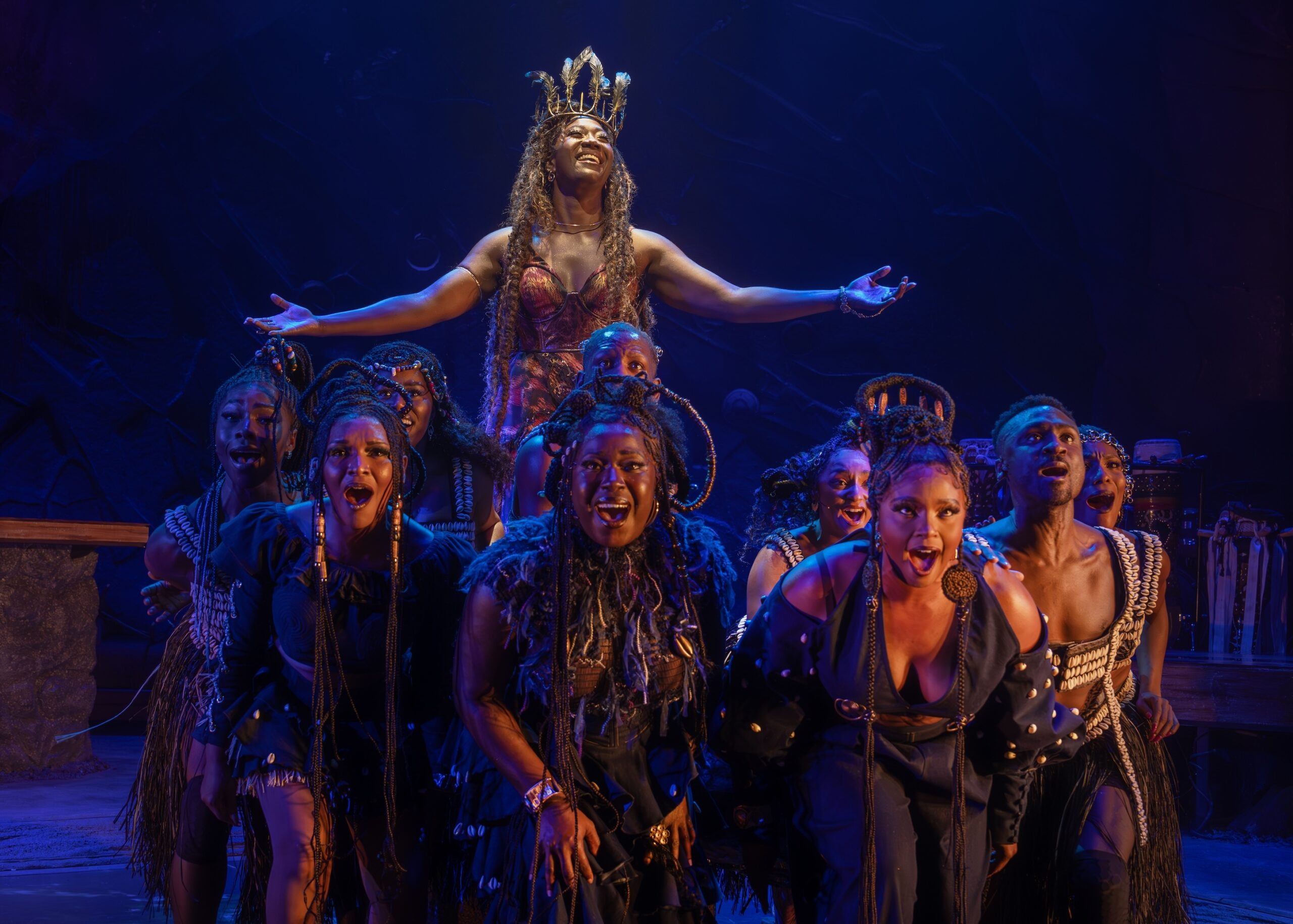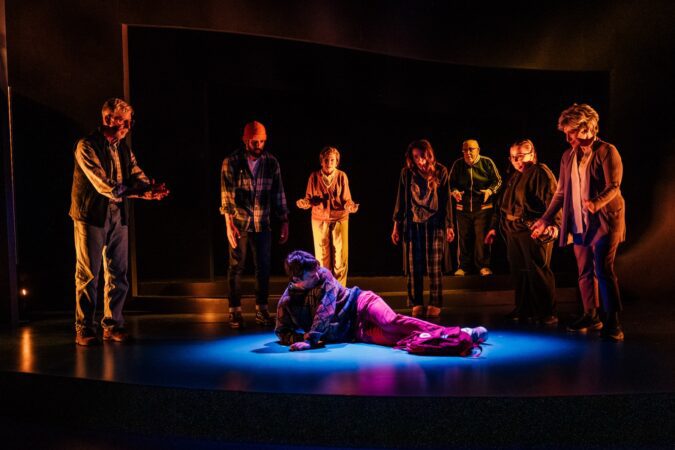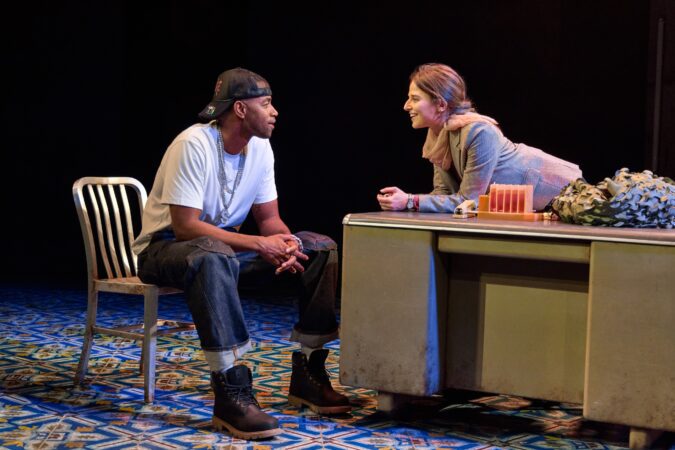One of the great dangers of AI is not artificial intelligence but American Ignorance. The great oceans that bookend our nation have given us a false sense of importance among global cultures.
It’s been more than 80 years since American foreign policy professor William T.R. Fox coined the phrase “superpower” to define a country’s world dominance. In what regard remains debatable: Economic? Political? Technological? Cultural?
English, Sanaz Toossi’s Pulitzer Prize-winning play about a small class of students studying for the Test of English as a Foreign Language (TOEFL) exam in Karaj, Iran, circa 2008, explores these multinational themes in an intimate way that questions cultural assimilation. If you’re U.S.-born and grew up in an English-speaking household, I imagine you’ve been guilty of making assumptions about someone because of their accent. And if you’re multi-lingual, navigating those internal and external judgments can be exhausting.
The four students participate for different reasons, from advancing their careers to forming bonds with assimilated family members. Toossi’s theatrical convention (which I’ll leave as a dangling carrot to preserve the play’s brilliant structure) invites us to consider the strain and stamina required to convey our needs and desires in a foreign tongue.
Farsi’s alphabet consists of 32 letters. “W” isn’t one of them, making some Westerners wince when hearing words with a “v.”
Of course, this isn’t really about the placement of the tongue or teeth but rather the misconstrued idea that when somebody doesn’t sound like you, they’re somehow inferior. As we muddle through a rampant era of xenophobia, English reminds us that listening is a dying art form desperate for a revival.
1MC Takeaway
While English is the most spoken language globally, only 25% are Native speakers. At 941 million, Mandarin Chinese has the highest number of native speakers—nearly 2.5x more than English. Consider this: 谦虚是一种好品质
